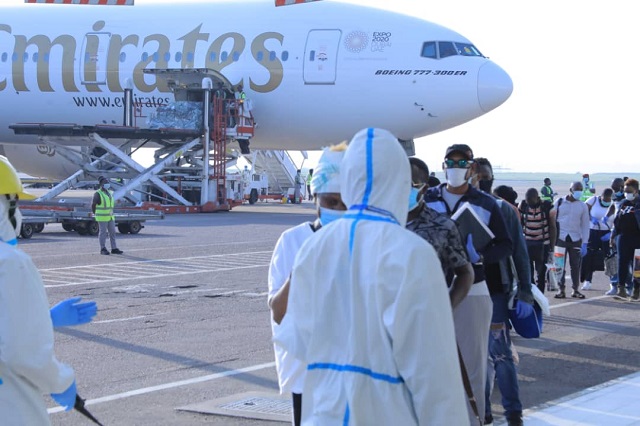The United Arab Emirates (UAE) has moved to suspend the issuance of tourist and work visas to Ugandan nationals beginning January 2026, a decision that threatens to upend Uganda’s labour export programme and strain trade ties with its biggest export market.
Uganda is now among the countries set to face a visa suspension in 2026, a move that will block Ugandan nationals from securing both tourist and work visas to the Gulf nation.
Uganda appears on a list of nine countries affected by the restrictions, alongside Afghanistan, Libya, Yemen, Somalia, Lebanon, Bangladesh, Cameroon, and Sudan, according to an immigration circular issued in Abu Dhabi.
The visa freeze comes a time when BBC investigative report linked Ugandan national Charles Mwesigwa to a sex trafficking network operating in Dubai’s upscale neighbourhoods.
The ban lands a heavy blow on Uganda’s external labour sector. Government records show that 120,459 Ugandans secured jobs abroad between 2022 and 2023, with nearly 90 percent deployed to the Middle East.
Their annual remittances, valued at USD 1.4 billion, have been a vital lifeline for households and a key source of foreign exchange.
The ripple effects extend beyond labour. The UAE is Uganda’s largest export destination, accounting for USD 2.62 billion in trade in 2024—more than a third of Uganda’s total exports.
Gold alone contributed USD 1.31 billion in 2023. Analysts warn that if the ban drags on, Uganda faces a “dual economic shock” of falling remittances and reduced export earnings, with implications for the shilling and foreign reserves.
